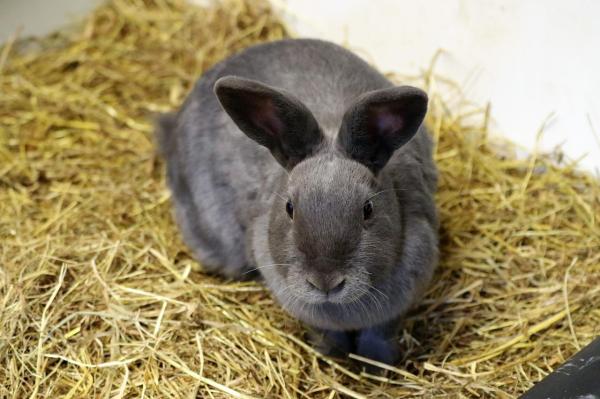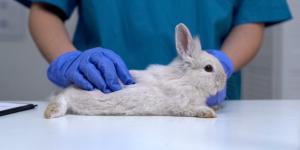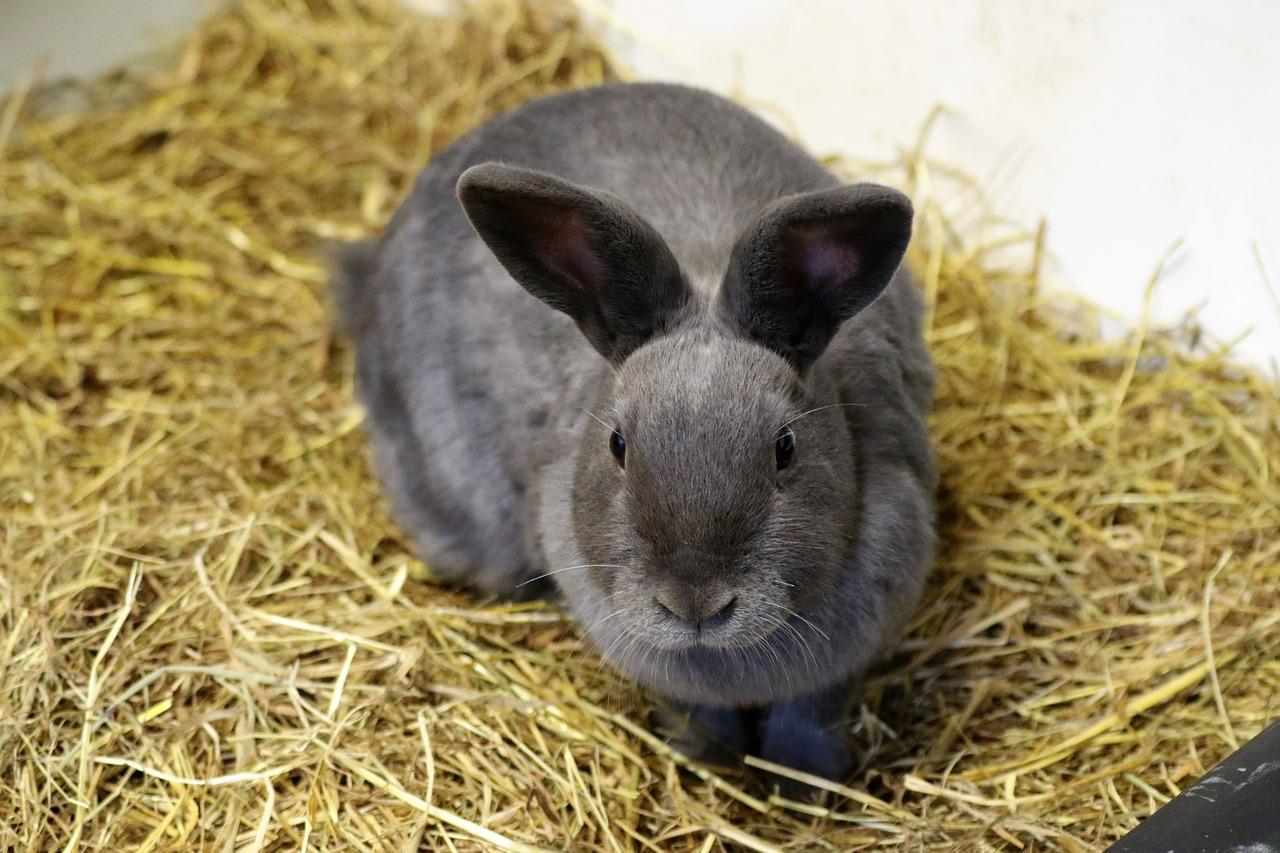Why Is My Rabbit's Urine Red?



See files for Rabbits
The way rabbits communicate may seem mysterious at first. As we get to know them, we can see that rabbits will show signs of happiness, stress or even infection in their own way. It is up to use to ensure we interpret these signs carefully. When it comes to a rabbit's health, there are signs of an underlying problem which even the rabbit themselves will not recognize. This is why it is so important to pay attention to changes in a rabbit's physical state, particularly when abnormalities appear. If you see red urine in your rabbit's hutch, then it is understandable you will be worried they are peeing blood. Blood in a rabbit's urine implies there is some internal problem, so it can make us understandably worried.
If you are wondering why is my rabbit's urine red?, then AnimalWised is here to help. We look into the possible presence of blood in rabbit urine, what this mean for your rabbit's health and other reasons a rabbit's urine may be red.
Hematuria in rabbits
Hematuria is the name given to the presence of blood in urine. It is a symptom of another disease or pathology, rather than a disease itself. However, just because we see the color red in our rabbit's urine, doesn't necessarily mean that hematuria is present. In fact, according to an overview by Allison and Neil (2003)[1], urine in the blood of rabbits is relatively rare. As a rabbit's cage will likely have hay on the ground, it can be difficult to detect red color in their urine at first. There are more likely to be other cause of urine discoloration in rabbits, which we detail further below.
Confirming the presence of hematuria in rabbits requires a trip to the veterinarian and various diagnostic tests. One of the most common is the dipstick test. The veterinarian will require a sample. This can be taken by collecting it yourself. You will need to keep them in a basin for a time after they have drunk some water. Once they pee it should collect in the basin and you can soak it up with a syringe. You may need to give the rabbit a clean afterwards. If this does not work, your veterinarian will be able to take the sample by expressing their urinary bladder[2].
Once the urine sample is collected, the vet can test the dipstick for the presence of blood. This sample will also test for other conditions and perform a full urinalysis. The urinalysis will be accompanied by a physical examination and a thorough analysis may include abdominal radiographs or a cystogram. They may also ask for blood analysis or ultrasound, depending on the suspicions of the vet.
Causes of hematuria in rabbits
While hematuria in rabbits is rare, there are some possible causes which can lead to the symptom. One of the most common is a problem with the urinary tract. Generally, when there is blood in a rabbit's urine it will be accompanied by other symptoms. These may include difficulty urinating, abdominal pain, distended abdomen, enlarged bladder, perineal dermatitis, anorexia or lethargy. Possible urinary tract diseases include:
- Kidney or bladder stones: stones are caused by a mechanical obstruction of the urinary tract, but are exacerbated by factors such as diet or decreased water intake. The name of the stone condition depends on the location of the stones. Urolithiasis are stones which emerge from the kidney and cystolithiasis begin int he bladder. They will be detected via X-ray and treatment will depend on the size of the stones and their location. Diet should be monitored in an attempt to eliminate them naturally. However, treatment based on analgesics (pain killers) and antibiotics will likely be issued by a specialist to remove the stones. If the problem is due to renal failure in the rabbit, then different protocol will be needed to stabilize the rabbit.
- Hypercalciuria or excess calcium: the most characteristic sign of this condition is urine which looks ‘muddy’. The bladder will become enlarged and will be painful is manipulated. An x-ray will also be sued to confirm a diagnosis. Treatment will depend on the severity of the case, but the main thing which will need to change are environmental factors. These are what lead to excess calcium in the first place. This is why it is so important to pay attention to a rabbit's nutrition and their water intake. Fluid therapy may be required to get rid of thew excess calcium, but analgesics and antibiotics may also be used.
As we can see these disorders are both based on calcium (stones are created by the accumulation of calcium in the urinary tract). Rabbit kidneys are capable of excreting this element according to their metabolic needs. The excretion of calcium should be proportional to their intake, hence the importance of providing adequate diet. However, it is possible they will get it from calcium enriched water sources. There are other causes of blood in a rabbit's urine and they include:
- Endometrial venous aneurysm: this is a condition which so far only appears to occur in rabbits[3]. This is when a vein in the uterine lining of the rabbit becomes enlarged with fluid and it can be very painful. Hysterectomies are the usual treatment.
- Uterine adenocarcinoma: this is a cancerous lesion which can appear on the uterus of the rabbit and lead to urine in the blood. It very rarely metastasizes[4], but it can often be mistaken for another disease. Hysterectomy is also the likely treatment.
- Bladder polyps: these are growths which develop on the mucus membrane in the bladder and can lead to blood in the rabbit's urine.
- Pyelonephritis: bladder inflammation which can lead to seeing blood in the urine of a rabbit. Detection can be found by an MRI[5], but it is unliekly this technology wil be available at your vet's.

Blood in female rabbit urine
There are two main things to take note of in the above conditions which cause urine in a rabbit's blood. Firstly, they are relatively uncommon. Not only are they uncommon, but even when present they are not likely to be detected unless a rabbit owner has very good pet insurance or a lot of money to spare. They usually require quite specialized diagnostic tools which are not available to all households.
The other main thing to notice is that a lot of the problems are specific to female rabbits. If a female rabbit is urinating blood, it may be due to a pathology in their reproductive system. While it can happen to find blood in the urine of a male rabbit (often due to tumors), uterine problems are often the cause of a rabbit peeing a little blood. These could be pyometra (enlargement of the uterine tissue) or tumors such as adenocarcinoma. In fact, the increase likelihood of such problems are why it is recommended that rabbits be sterilized. This is in addition to the other benefits it can provide for the rabbit.
Red urine in rabbits is not always blood
While we are understandably worried that there may be blood in our rabbit's urine, it is les likely to be due to internal hemorrhage than other causes. If se have a female rabbit and we see their urine is a little red, it is important to check to see if they are not in heat
. If they are, they will likely have a swollen vulva and blood may be related to this state.
However, the red color of a rabbit's urine may not be blood at all. What a rabbit ingests can change the color of a rabbit's urine. Factors which can color a rabbit's urine pigment red include:
- Food: this is often due to eating foodstuffs (especially fruits and vegetables) which contain a lot of beta carotene. These food include kale, spinach, sweet potato and, of course, carrots. The red color usually leaves in a few days if they stop eating this food.
- Antibiotics: if a rabbit is otherwise ill, they may be given antibiotics to treat an infection. If this is the case, it can result in the rabbit's urine turning red.
- Stress: if you rabbit is stressed, it is believed that this can change the color of your rabbit's urine. This has been observed in rabbits during transport and heat seems to be a factor[6].
- Dehydration: just a an adequate lack of water intake can darken our own urine color, the same goes for rabbits. Ensuring your rabbit has plenty of fresh water is imperative.
- Abortion: if your rabbit is pregnancy but suffers a miscarriage or the fetus is aborted for whatever reason, it can lead to red urine.
The best way to prevent red urine in your rabbits is to ensure their dietary needs are adequately met, they have plenty of water and they are sterilized. Keeping an eye on any changes in behavior or temperament is also very important. Take your bunny to the vet if you see any significant changes.
This article is purely informative. AnimalWised does not have the authority to prescribe any veterinary treatment or create a diagnosis. We invite you to take your pet to the veterinarian if they are suffering from any condition or pain.
If you want to read similar articles to Why Is My Rabbit's Urine Red?, we recommend you visit our Other health problems category.






